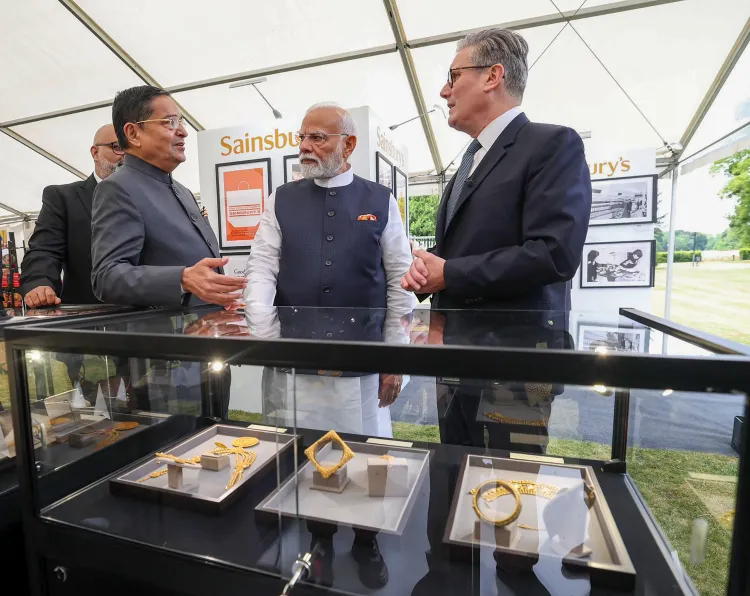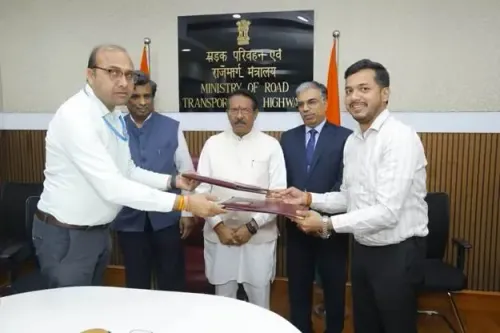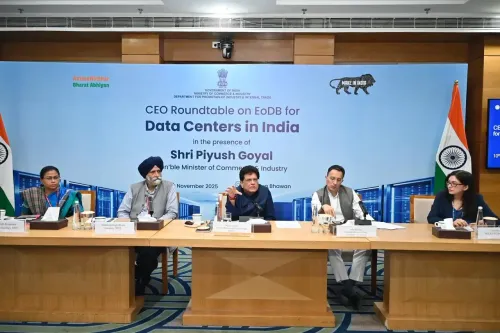How is India Strengthening Its IP Regime in UK Trade Talks?

Synopsis
Key Takeaways
- India is committed to a strong IP regime in UK trade talks.
- The IPR chapter balances innovation with public health safeguards.
- Geographical Indications (GIs) are a major opportunity for Indian exports.
- Voluntary licensing remains the industry’s preferred practice.
- India’s regulatory autonomy is preserved amidst procedural improvements.
New Delhi, Sep 24 (NationPress) India has reiterated its commitment to establishing a strong and progressive Intellectual Property (IP) regime during the ongoing trade negotiations with the UK, as stated by the Commerce Ministry on Wednesday.
The Department for Promotion of Industry and Internal Trade (DPIIT) and the Department of Commerce, along with the Centre for Trade and Investment Law (CTIL), hosted a seminar titled “Demystifying the IPR Chapter in the India–UK CETA” in the capital.
During the seminar, policymakers, industry experts, academics, and business representatives engaged in discussions regarding the opportunities and challenges surrounding the Intellectual Property Rights (IPR) provisions found within the India–UK Comprehensive Economic and Trade Agreement (CETA).
Experts emphasized that the IPR chapter is designed to maintain a delicate balance between promoting innovation and ensuring accessibility.
The panels debunked several misconceptions related to the agreement and clarified that the IPR chapter does not restrict India’s policy space.
“On the contrary, it strengthens India’s capacity to establish regulations that align with its developmental objectives. Furthermore, it was highlighted that the chapter mirrors India’s current legal framework while conveying a positive message to global partners and investors about the nation’s dedication to a strong and forward-looking IP regime,” as per the ministry's statement.
Additionally, it was stressed that the provisions enhance protections for public health while modernizing India’s IP framework.
Participants reiterated that voluntary licensing remains the preferred practice within the industry, while the flexibilities concerning compulsory licensing and public health, as outlined in the Doha Declaration, are fully preserved.
The ministry noted that concerns regarding the harmonization of patent processes were addressed. Experts clarified that these are merely procedural enhancements that do not compromise India’s regulatory independence.
Geographical Indications (GIs) emerged as a vital area of opportunity, with provisions within the agreement facilitating stronger protection of Indian GIs in the UK market—an essential advancement for boosting exports and enhancing India’s cultural branding on a global scale.
Industry representatives underscored that this would be advantageous for startups, MSMEs, and traditional producers alike.
“The IPR chapter of the India–UK CETA serves as a model for future trade negotiations—merging regulatory rigor with flexibility, supporting innovation while protecting accessibility, and fortifying India’s position in the dynamic global trade environment,” as stated by the officials.









